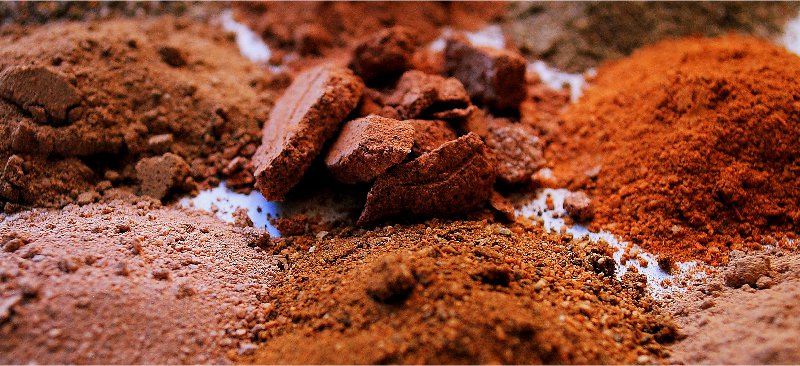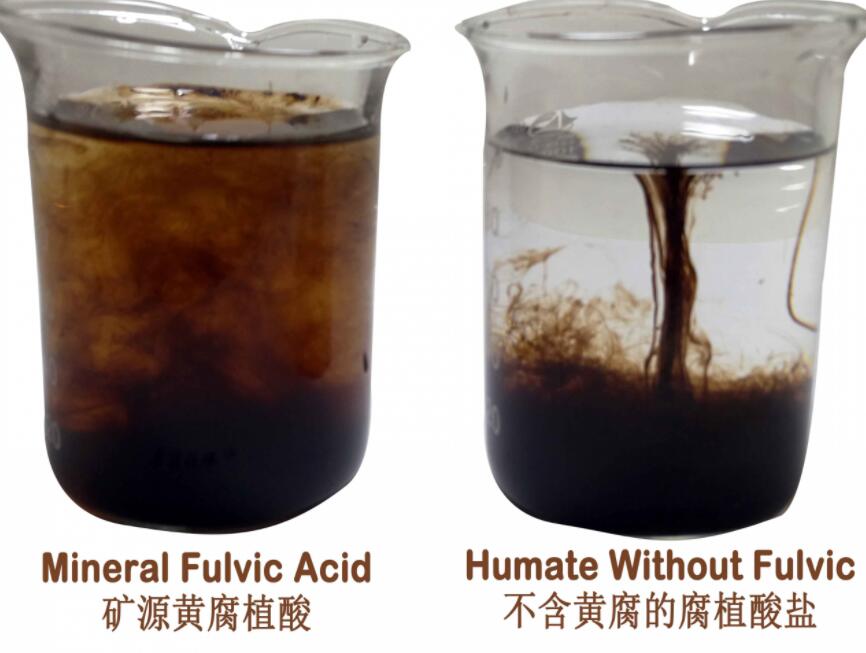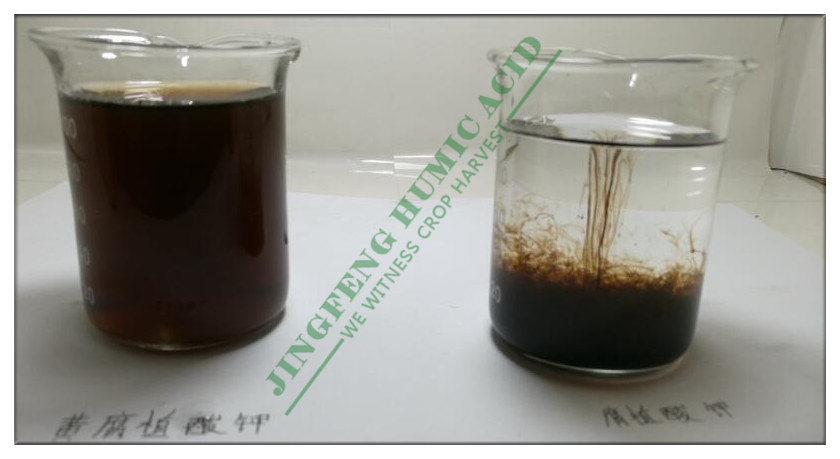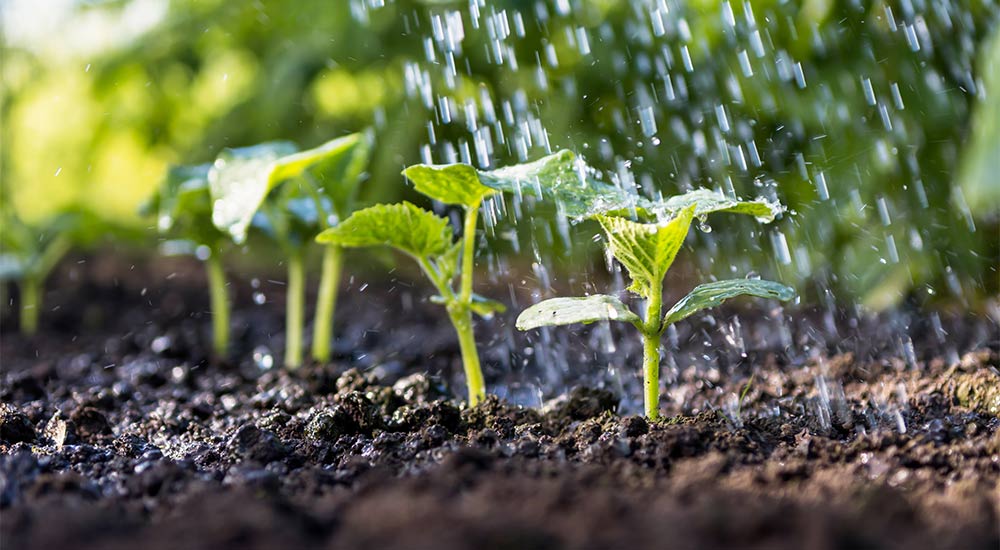
Related products: Humic acid, potassium humate, fulvic acid
Soil is an indispensable and non-renewable natural resource of human beings. It is the material basis on which human beings depend for their survival. Soil has the production capacity to support plant growth. At the same time, it also has the ability to assimilation and metabolize external materials as soil material.
And has the environmental capacity to carry a certain pollution load. Therefore, soil is also often used as a purifier to protect the environment. When pollutants exceed the soil absorption capacity, soil pollution will occur, resulting in food safety problems.
Soluble Humic Acid (Potassium humate) prevent the heavy metal pollution

Soil modifiers such as lime, phosphate, zinc oxide, phosphate powder, organic fertilizer and EDTA chelata mixture are applied at home and abroad to precipitate heavy metals in the form of carbonate and phosphate. Or to be adsorbed by chelata mixture. So as to reduce their activity and reduce or avoid the pollution of heavy metals on agricultural products.
In addition, adopting planting structure adjustment is an effective and feasible agricultural technical measure to reduce heavy metal pollution to food. Non-edible flowers, forestry seedlings, green lawn crops, and anti-heavy metal pollution crops and varieties will be planted in the heavy metal contaminated plots.
The results show that the combination of humic acid fertilizer and related soil improver (potassium humate, fulvic acid) with the above measures is a cheap and effective comprehensive control method.
Humate has the effect of complexing to fix heavy metals and reducing the activity of heavy metals.

Humic acid characteristics
Humic acid contains carboxyl groups, phenolic hydroxyl groups and other active functional groups. With hydrophilicity, adsorption, ion exchange, complexation, REDOX and biological activities.The application of humic acid to soil can cause various chemical reactions such as adsorption, ion exchange, REDOX and chelation with the water-soluble and adsorbed bioavailability heavy metal ions. So that the heavy metal ions can be fixed by complexing and chelating or adsorbed. Reducing the bioavailability of heavy metal ions and reducing the amount of plant absorption.
Experimental results
A large number of experimental data have proved that the application of soil modifier such as lime, zinc oxide, apatite and other soil modifier to increase the soil pH. Which can make heavy metals precipitate in the form of carbonate, phosphate, sulfate and reduce the biological availability. Lime and other improvers are applied together with humic acid and organic fertilizer. Because lime can promote the complexation of humic acid to heavy metal. Improve the effect of preventing and controlling heavy metal pollution.
Experiment of remediation of paddy soil contaminated by copper and zinc

The study and experiment of remediation of paddy soil contaminated by copper and zinc in northern Taiwan by xu zhengyi, showed that when combined application of calcium oxide with green fertilizer, apatite and humic acid, the fixation effect of copper and zinc was improved.
And the bio availability concentration of copper and zinc was reduced. When we applied lime, zinc oxide and compost to treat contaminated soil remediation, the soil pH was increased from 5.4 to 7.5.
According to the test results, the effect of fixing cadmium with lime and compost was also better than that with lime alone. The content of cadmium in wheat grains reached the hygienic standard of Taiwan. However, organic compost and zinc oxide had no significant effect on reducing cadmium content in wheat seeds. Some experiments have shown that neutralizing soil pH above 6.5 minimizes mercury uptake by plant roots.
Research and analysis on the content of oxalate heavy metal lead, cadmium and mercury
Xiang guodong etc. ‘s research and analysis on the content of oxalate heavy metal lead, cadmium and mercury under different treatments of humic acid paste irrigation (potassium humate, fulvic acid) showed that, each application of 15 kg/mu treatment significantly reduced the content of lead. And the content of cadmium and mercury was higher than that of the control group.The content of three heavy metals was significantly lower than that of the control group.The second irrigation of 5 kg/mu had no effect on reducing the content of 3 kinds of heavy metals.
Our own experiments
According to our test of the leaching liquid of fertilizer and solid humic acid fertilizer, the pH of the leaching liquid of alkaline fertilizer decreased gradually from 8.22 to 6.84. And the pH of the leaching liquid of fertilizer fertilizer changed from alkaline to neutral. While the chemical fertilizer leaching liquid PH decreased gradually from 7.95 to 5.43.
The range of the two leaches is 1.38 and 2.52 respectively. The steady regulation of humic acid fertilizer on the pH of soil solution resulted in significant differences in the electrical conductivity of leaching liquid. The electrical conductivity of humic acid fertilizer was lower than that of chemical fertilizer and soil leaching liquid. It indicates that humic acid fertilizer can reduce the concentration of heavy metal in soil solution.
Effect of Humic Acid on Heavy Metals
The application of humic acid substances to prevent and control heavy metal pollution
The application of humic acid substances which help to prevent and control heavy metal pollution shall consider the type, application amount, suitable application method , time , the type and form of heavy metal pollution. But look from now master test data, the application of alkaline potassium humate, sodium humate and calcium humate polymer modifier, or calcium oxide alkaline modifier application, as well as the  application of alkaline humic acid compound fertilizer, to improve the soil pH. Form steady humic acid heavy metal salt, polymer to reduce the effect of biological activity of heavy metals. Combined with strong heavy metal resistance ability crop varieties. Also can produce the pollution-free food safety in the soil of certain pollution.
application of alkaline humic acid compound fertilizer, to improve the soil pH. Form steady humic acid heavy metal salt, polymer to reduce the effect of biological activity of heavy metals. Combined with strong heavy metal resistance ability crop varieties. Also can produce the pollution-free food safety in the soil of certain pollution.
Humic acid can enhance soil heavy metal activity
Low molecular weakly acidic humic acid can enhance soil heavy metal activity. Which is conducive to improving the rate of phytoremediation of heavy metal contaminated soil. Due to the existance of active hydrogen on acidic groups in the molecular structure of humic acid. This matter is weakly acidic and soil pH is reduced. Which is conducive to improving soil heavy metal activity.
Hydrogen elements on its molecules can exchange with heavy metal ions. Under the condition of soil REDOX potential > 0.7v, it showed reduction effect of electron donor. Which changed heavy metal from oxidation state to reducing state. And reduced heavy metal ions from high valence state to low valence state. Reducing precipitation in oxidized state or high valence heavy metal salt state.
Humic acid has the ability to complex and chelate heavy metals.
It has the ability to complex and chelate heavy metals. The sequence of chelating ability of different kinds of humic acids is fulvic acid > brown humic acid > black humic acid. For example, each gram of fulvic acid can bind fe2o3750-890mg. And each gram of black humic acid can bind fe2o3119-152 mg.
However, small molecule fulvate has good solubility and poor stability. Which enhances the biological activity of heavy metal ions and is easy to be absorbed by plants or microorganisms with the ability of super-enrichment of heavy metals. Therefore, it can accelerate the phytoremediation and bio remediation of soil contaminated by heavy metals and shorten the remediation time.
Humic acid can enhance the bio availability of heavy metals

It can enhance the bio availability of heavy metals. And it has a similar effect to the application of EDTA and other chelating agents in the treatment of heavily polluted soil by phytoremediation technology with super-enrichment of heavy metals.
By increasing the concentration of heavy metals in the soil solution, the amount of heavy metals absorbed by plants and the ability to accumulate heavy metals are greatly increased. The heavy metals in the soil are removed from the soil with the harvest of plants and gradually return to the normal level. So that the pollution can be controlled.
The harvested heavy-metal-rich plants can be used to extract heavy metals or as other non-edible materials. Application of humic acid fertilizers and related soil improvers (potassium humate, fulvic acid) can increase the removal rate of heavy metals from soil at a much lower price than chemical chelators such as EDTA. Therefore, humic acid is a good and cheap soil improver.





